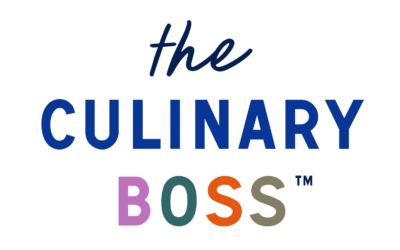
by Miriam G. Zacharias, MS, NTC, BCHN, President of the NANP
Most of us take on too many things when declaring our New Year’s resolutions.
We launch a renewed commitment to lose weight, increase exercise, start playing the piano again, dive into the literary classics and read a book a week, and sign up to devote a portion of our time to non-profit activities.
Then there’s the list of “don’t do’s” that we pull together: less TV and alcohol, reduce negativity in thought and deed, and, as you are intimately aware, there’s that massive list of foods that we swear will not pass our lips in 2020.
Then, layer on top of that all our business resolutions and pretty soon our short list of resolutions could fill a novel!
And yet, the statistics on how many people actually follow through and accomplish their New Year’s resolutions are rather grim. Studies have shown that less than 25% of people actually stay committed to their resolutions after just 30 days, and only 8% accomplish them.
If you are in that 92% who finds yourself frustrated by your success when February 1 comes around, why not do something different instead: set goals versus resolutions.
Why? Because goals are specific, whereas resolutions tend to be broad and vague.
Goals are much more actionable, which is what makes them more effective.
How can you turn your New Year’s resolutions into goals?
So here’s my take on making progress next year:
- Identify just one big, needle-moving project that you want to tackle. Get clear on what you want to accomplish, why it’s important, and how you’ll make it happen. Is it time to write your book? Build an online course? Get on the speaking circuit? Or perhaps you simply want to deepen and focus your clinical expertise by attending one of our pre-conference workshops at the NANP conference. Pick the thing that you’ve been longing to do and never seem to have time for. If you feel some nervous excitement when you think about the project, you’re on the right track.
- Set a timeline for completing it. Otherwise, the busyness of life and the focus to bring in short-term revenue each day will crush your ability to leap forward toward your goal. I don’t accept the notion that “there’s not enough time.” Those who achieve great things are simply more productive with the time they have available. They block time and set boundaries extraordinarily well. Want to know the secret word of those who make great gains in their work? It’s “no.” Winners refuse to do things that pull them off course and away from their dream.
- Identify the steps you’ll take toward accomplishing that project from item 1 above. Start outlining your book or new signature talk. Get as specific as possible and outline all of the smaller steps you’ll need to take to reach your full goal. But start. Now. Use time blocks each week to work exclusively on your project, uninterrupted by the rest of your life. View these times as appointments with yourself that cannot be cancelled without penalty.
- Measure backwards. As you make progress toward your goal, don’t punish yourself for what didn’t get done last week. Negative self-talk not only makes you feel bad but can also derail momentum. Like the person who figures she may as well abandon her diet because she ate a donut for breakfast, missing a time block is no excuse to give up on the project. Instead, measure what you have accomplished since starting the year and commit to finishing your project in the timeline you established.
Once you’ve completed one big goal, identify another and start the process all over again.
I often think about carving out 3 months per project but, of course, that depends on the project. I have discovered that whether or not I complete my project in 3 months’ time is less important than the habit I’ve developed to prioritize the project itself.
Whatever one thing (or many) you choose to do in 2020, make your goals meaningful to you …and remarkable.
I’ll look forward to hearing about your accomplishments in person at next year’s HEALCon!




